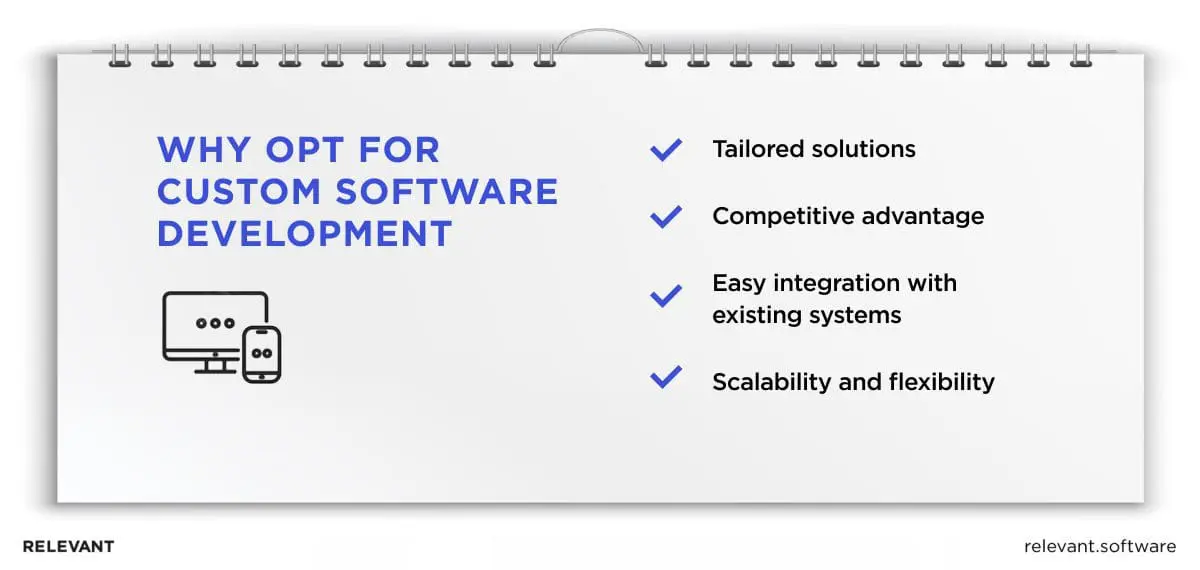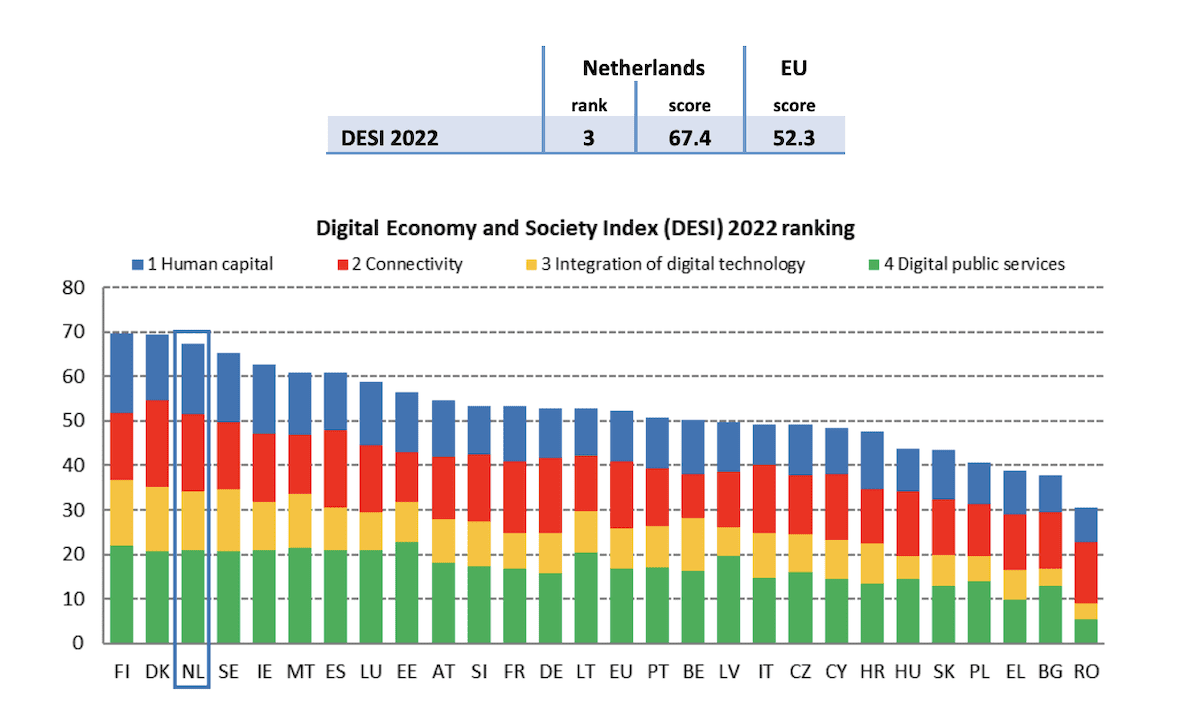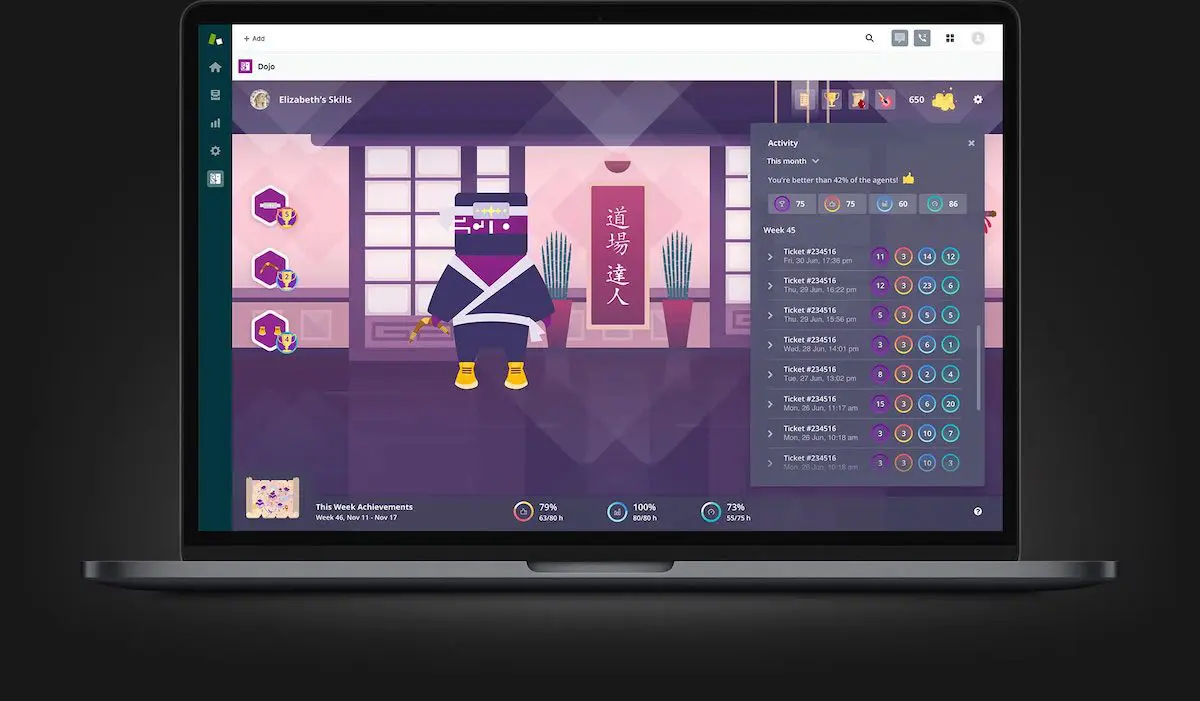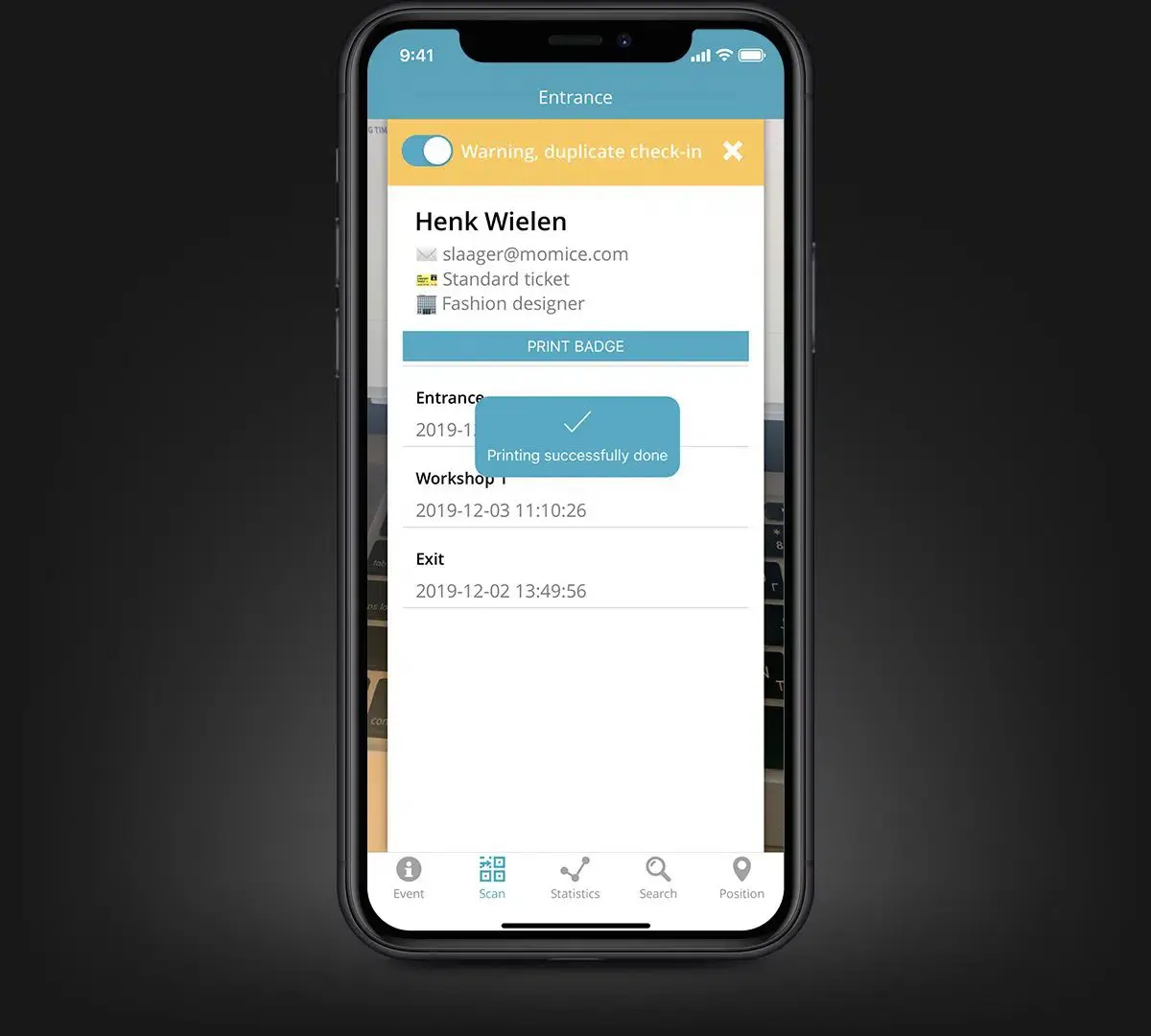Custom Software Development in the Netherlands: Benefits, Challenges, and Best Practices

Many Dutch startups rely on off-the-shelf solutions to get off the ground, but as they scale, that initial thrill of an “easy start” can morph into a frustrating lack of control. Even more than that, all those quick solutions (white-label, SaaS, ready-made, etc.) can become bottlenecks for your business that hinder growth. This is precisely why custom software development services globally and in the Netherlands, in particular, not only remains in high demand to this date but continues to thrive.
Software is a tool businesses use to achieve their goals, but when this tool becomes a limitation rather than an enabler, it’s time for a change. If you have come to the same conclusion and seek something custom but don’t know where and how to start, you’re in the right place. As a custom software development company with a luggage of experience in custom solution creation for the Dutch market, we’re here to provide you with a deeper insight into custom software development services and how to select the right vendor.
What is Custom Software Development?
To put it simply, custom software development is the creation of software application from the ground up with the purpose of fulfilling the particular needs of your business and product. It provides a highly customized solution that can improve productivity, automate procedures, and offer features and functionalities made especially to meet the unique requirements, workflows, and goals of you and your end users.
Today, there are many off-the-shelf digital solutions for different business needs (Zoho, Sitebuilder.com, etc.), which can be advantageous for a quick start. Affordable and easy to set up, ready-made digital tools are like renting a pre-furnished apartment. They get you settled in fast, but what if the couch is the wrong color, the kitchen is too small, and there’s no balcony for your morning coffee?
Off-the-shelf software often lacks some critical features. If you actually seek this type of software or layout, you need to thrive. In this case, Dutch companies turn to custom software to build a solution that will fit perfectly their requirements and workflows.
Benefits of Custom Software Development
Increasingly, Dutch businesses opt out of the proprietary software game and choose custom development to outperform, outmaneuver, and outrun the competition. Here are some other reasons why leading Dutch organizations decide to develop custom software:

Tailored Solutions that Meet Specific Needs
Forget the frustration of forcing your unique needs into a one-size-fits-all mold. A custom software solution is built from scratch to perfectly fit your workflows, automate repetitive tasks, and let your team do more with less time.
Competitive Advantage
Distinguish your business with software that has unique functionalities built to address your specific challenges and set you apart from competitors. Bespoke software is what can help you deliver an unforgettable customer experience and gain a strategic edge.
Integration with Systems You Use
Tailor-made software integrates seamlessly with your current systems, which creates a streamlined ecosystem that supports collaboration and optimizes efficiency.
Scalability and Flexibility
Your business is dynamic, and your software should be too. Custom software application is scalable and adaptable, often designed to grow and evolve alongside your needs. With bespoke solutions, you’ll never be held back by a rigid system.
Challenges in Custom Software Development
Whatever beneficial bespoke software may be, there are some challenges you may face during the development. Let’s see what potential hurdles might await you and how you can navigate them:
Challenge #1: Time and cost implications
Ready-made software has a fixed price tag, yet custom software application development is an investment. The timeline and budget will depend on the complexity of your project. It’s crucial to have a clear understanding of your requirements from the outset to avoid scope creep, which can lead to unexpected delays and cost overruns.
Mitigation strategies from Relevant experts:
- Detailed planning: Clearly define your project goals and functionalities before development begins.
- Phased development: Divide the project into manageable parts with clear milestones and budgets.
- Agile methodology: We highly recommend to adopt this development approach, so you can benefit from flexibility and adaptation as the project moves forward.

Challenge #2:Risk of project failure and mitigation strategies
There’s always a risk of project failure, even with the best intentions. This could be due to unclear requirements, communication breakdowns, or technical hurdles.
Mitigation strategies from Relevant experts:
- Experienced partner: Partnership with a reputable software development company with a proven track record reduces the risk of project failure.
- Open communication: Clear and consistent communication between your in-house staff and the development team is critical for positive outcomes.
- Agile development: This iterative approach allows for course correction and adjustments throughout the software development process.
The Market for Custom Software Development
As Dutch organizations seek to increase productivity and stay competitive, the demand for bespoke continues to rise. In 2023, the global custom software application development market was valued at approximately $35.42 billion, and analysts project it to grow at 22.5% annually from 2024 to 2030. A great weight of it is attributed to the Netherlands, one of the top tech hubs in Western Europe. Due to its rich pool of tech talent and the advanced digital economy, the country has become a major destination for bespoke application development.
Major Cities Leading in Software Development
Large enterprises and small businesses alike will find the Netherlands to be a great place to kickstart their software projects, with numerous cities providing excellent opportunities and resources. Amsterdam, Utrecht, Eindhoven, and Rotterdam are major cities that have top-tier infrastructure and offer skilled software developers.
As recent data shows, the Netherlands holds the 3rd position among the 27 EU Member States in the Digital Economy and Society Index (DESI). That’s because the Dutch government actively supports the tech sector through grants and tax breaks, which makes it an even more financially attractive location for software development services.

Source: Digital-strategy
The Skill Gap to Address
However, even the most vibrant tech scene faces challenges. The Netherlands, like many countries, experiences a tech talent gap. While the number of software developers is on the rise and the concentration of tech talent in the Netherlands is remarkably high (19 per 1,000 inhabitants), there is still a need for more developers. This translates to fierce competition for talent and higher development costs.
Unfortunately, this is a reality in Western Europe, where the demand for skilled developers outstrips supply. Faced with this issue, Dutch companies found that software development outsourcing to Eastern Europe could be a viable solution. In addition to an abundance of qualified engineers and niche experts, nearshore IT outsourcing allows organizations to bridge the talent gap and build high-quality solutions at more competitive prices.
Technologies Impacting Custom Software Development in the Netherlands
As the world rapidly embraces technological innovation, the demand for specialized software solutions skyrockets. AI, machine learning (ML), IoT, and blockchain technologies are some of the most groundbreaking technologies that drive the change. Let’s see how they impact custom software product development services in the Netherlands:
1. AI & ML
This technology continues to dominate the charts as one of the most impactful and will remain a top custom software development trend in 2024–2025. As we offer AI development services, we have many case studies where AI and ML are the key technologies in our clients’ projects. At the same time, many software development houses adopt AI to power their processes and deliver solutions faster. Here are some ways AI helps:
- Smart automation. AI can automate repetitive tasks within your software that will free the developers’ precious time, in the literal sense of the word, and let them devote more time to problem-solving and coding.
- Predictive analytics. ML algorithms can use data you collect on users to anticipate user behavior and personalize the user experience.
- Better security. AI systems can detect and prevent security threats to keep your data safe.
2. The Internet of Things (IoT)
The Netherlands is a leader in the IoT revolution, and custom software is the glue that binds it all together. Even though IoT software development services are relatively new, they have already disrupted the IT industry. IoT is widely employed in different kinds of equipment, vehicles, buildings, and tons of other devices we use today. IoT is especially in high demand in custom healthcare software development due to:
- Data-driven insights. Gain valuable insights from connected devices that let you make data-driven decisions and improve operational efficiency.
- Remote control. Manage and monitor your devices remotely from one platform with an overview of all your operations to streamline workflows and reduce costs.
- Richer user experiences. Create intuitive and responsive user interfaces that simplify the interaction with connected devices and offer a seamless user experience.
3. Blockchain: Building Trust & Transparency
Blockchain technology has changed the way we store and share digital data. Dutch developers are among the first to build software solutions that leverage blockchain’s unique features:
- Enhanced security. Blockchain’s distributed ledger system offers unmatched security and tamper-proof data storage.
- Increased transparency. All participants on the blockchain network have access to the same data, which builds trust and adds transparency in transactions.
- Streamlined processes. Automate complex workflows and eliminate the need for intermediaries.
How to Choose the Right Development Partner in the Netherlands
When you consider software development outsourcing, your options for vendors are countless. However, only a select few will offer the perfect combination of skills, processes, and cultural alignment that will suit your organization and project.
“The right technology partner will understand your business goals and have the technical skills to achieve them. They’re eager to solve your problems, not just deliver a shiny app. They comfortably communicate about both business and technology and have clear processes to ensure alignment from start to finish.”
Criteria for Selecting a Software Developer
We’ve outlined a few criteria that will help you choose a development company that solves problems, not sells. So, let’s take a brief glance at each of them.
- Expertise. Look for a development partner with a proven track record. Check their portfolio to see if they have experience with similar projects to yours. Also, ensure they have expertise in your industry. For instance, if you need custom healthcare software development, check if they have experience in that field.
- Client testimonials. Satisfied clients are the best ambassadors. Look for testimonials that tell about the team’s technical skills, communication, and ability to meet deadlines. Positive feedback from previous clients is a strong indicator of the company’s reliability and quality.
- Communication and transparency. Assess the team’s English proficiency and their preferred methods of communication (e.g., video conferencing, project management tools). Make sure their team is open, transparent, and responsive.
Expert Tip: Interview a couple of potential vendors, and don’t be shy to ask tough questions. At the end of the day, you choose a partner to who you may entrust your project and on who largely depends your software’s success.
Best Practices for Working with Remote Software Developers
With the right approach, remote collaboration can be a breeze. From our experience, here are a few moments to pay special attention to when you hire remote developers and want to establish productive working relationships:
- Clear project definition. Define your project scope, goals, and deliverables in detail. This ensures everyone is on the same page from the start.
- Agile project management. Utilize tools like Scrum or Kanban to break down tasks into manageable sprints and facilitate communication.
- Regular reviews and feedback. Schedule frequent meetings and leverage collaboration tools to provide feedback and ensure project deliverables align with your business objectives.

Our Dutch Case Studies
As a company that has provided custom software development services in Europe and the Netherlands in particular for over 10 years, we have accumulated extensive expertise in the Dutch market and have successfully completed a number of projects for Dutch clients. Here are some of them to show our approach and the way we solve problems.
Kaizo
We helped Kaizo, a Dutch company that develops SaaS products, improve their gamification platform for customer service teams. Our team built and integrated AI-driven performance analytics and game mechanics, which helped to boost user engagement and productivity. Also, we were tasked with the creation of a custom UI with a lot of interactive elements, illustrations, and charts. As a result, Kaizo received Kaizo received glowing reviews from their customers, who saw a significant improvement in their service teams’ performance.

Momice
For Momice, a prominent event management software provider, we redesigned their mobile app to help them streamline event organization processes. What we did for them was:
- enhanced the user interface,
- improved backend functionality,
- added new features and functionalities like a QR code scanner and attendance analytics.
Thanks to the new iOS and Android apps we built and new simple designs, Momice could offer a more seamless experience for event organizers and attendees.

Bidly
Bidly, an online rental platform faced technical challenges that we helped overcome by stabilizing their project build and Docker setup. Our developers modernized the existing front end to make it more intuitive and visually attractive. On the back end side, we fixed some issues with configurations and improved performance to enhance the platform’s stability. So, we completely revamped the platform, which also included a new design for simpler user navigation and improved functionality.

Partner with Relevant for Custom Software Development
Don’t let the complexities of custom software development hold your business back. While optimizing processes and having a strong software development team are crucial, there’s no need to become a master of every discipline.
At Relevant, we offer comprehensive custom software development services, which means we do everything: concept validation, design, and creation of rock-solid apps (web or mobile, your choice!). We don’t just launch and leave – we’re your tech partner that provides UX/UI makeovers, outsourced development, backups, and 24/7 support. Stuck halfway through a project? No sweat! We seamlessly integrate into your existing workflow, no matter the stage.
We build custom solutions to help businesses take advantage of full control, scalability, security, and a brand experience that’s uniquely yours. We’ll be by your side every step of the way, helping you reach your goals and dominate the digital landscape. Contact us today to discuss your custom product development needs.



